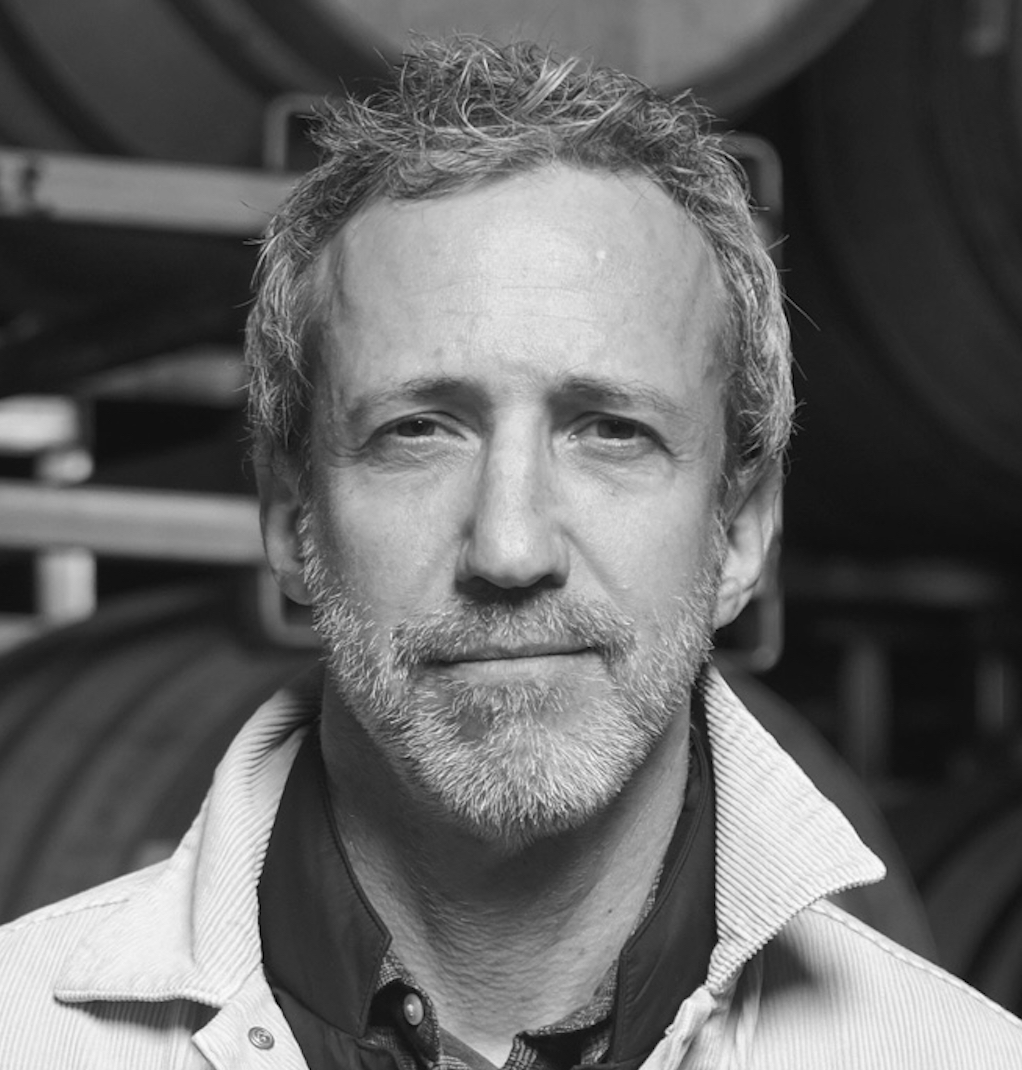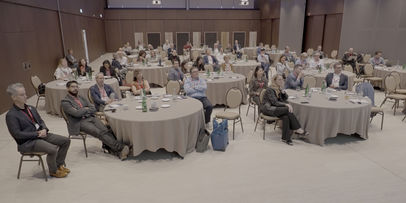
Exploring the Intersection of Wine, Data Science, and AI
Vine to Mind 2025 Symposium
JUNE 24 - 25
Symposium Speakers
More to come!

Kia Behnia
Co-Founder and CEO, Scout

Laura Catena
Managing Director, Bodega Catena Zapata; Founder, Catena Institute of Wine; Owner, Luca Wines

Gildas L'Hostis
Senior Lecturer, EHL

Caroline Meesemmaecker
Owner and CEO, Wine Services

Julien-François Nebel
Histoire d’Enfer

Alexandre Pouget
Professor at the University of Geneva

Véronique Sanders
CEO, Château Haut-Bailly

Albert Strever
Senior lecturer of Viticulture and Oenology, Stellenbosch University

José Vouillamoz
Founder, José Vouillamoz Wine and Grapes Consulting

Coralie de Boüard
President, Château Clos de Boüard

Jing Cao
Professor of Statistics, Department of Statistics and Data Science, Southern Methodist University

Cathy Huyghes
HDSR Advisory Board, Co-Founder and CEO, Enolytics

Xiao-Li Meng
Founding Editor-in-Chief Harvard Data Science Review, Professor of Statistics, Harvard University

Nikita Novelle
EHL & Domaine Novelle – Le Grand Clos

Clive Pursehouse
North American Editor, Decanter Magazine

Ulrich Sautter
Wine Editor-in-Chief, Falstaff

Ricky Sun
Life Sciences Partner, Bain Capitol

Jean-Philippe Weisskopf
Associate Professor of Finance at EHL

Marc Brevot
Director, Robert-Jean D Vogüé Moët Hennessy Research Center

Francesca Dominici
HDSI Faculty Director, Professor of Biostatistics Harvard University

Eric LeVine
Founder/CEO, CellarTracker LLC

Jeff Meisel
General Manager, Kosta Browne and Special Adviosr, The Duckhorn Portfolio

Ramesh Oertli
Brand Manager, Vinattieri Ticino

Steffen Raub
Professor of Organizational Behavior, EHL

Günter Schamel
Professor of Agricultural and Food Economics, Free University of Bozen-Bolzano

Nicolas Velin
Head of Business Development, Domaines Caroline Frey

Michele Caimotto
Founder, Wine Rose Sàrl

Hamit Hamutcu
Industry Column Co-editor, HDSR, Co-Founder, Elements

Christian Lüscher
Professor, Dept Basic Neuroscience & Clinic of Neurology, University of Geneva

James Miles
Chairman and CEO of Liv-Ex

Miguel Paredes
Industry Column Co-editor, HDSR; Partner, Kearney; Fellow and Adviser, AI Fund

Jamie Ritchie
Former COO, BlockBar; Worldwide Chairman, Sothebys Wine

Jan Schwarzenbach
Head of Fine Wines, Coop

Pauline Vicard
Co-Founder and Executive Director, Areni Global

Felicity Carter
Editorial Director of Areni Global

Dr. Nicole Hinrichs
Associate Dean for the Degree Programs of the Graduate School, EHL

Phillipe Masset
Associate Professor of Finance at EHL

Benoit Molinie
Founder and Owner, Petit Vin

Sam Paddock
CEO, Next Gen Learning

Saskia de Rothschild
CEO and Director General, Château Lafite Rothschild

Anna Grichting Solder
Research Fellow, University of Vermont; Urbanist and Musician, Switzerland

Arnaud de La Ville
Administrative and Financial Director, Haut Médoc Sélection
Symposium Agenda
Updated frequently
🍇 Registration & Morning Coffee (8:00 AM - 9:00 AM) Main reception and coffee area location
One registration desk will be open until 1pm at the main reception.
🍇 Pre-Symposium Tutorial (8:45 AM – 12:00 PM) Aula Location
Data Science & AI Literacy for the Wine Industry – An online tutorial designed for wine professionals to
understand and leverage data science and AI tools.
- Hamit Hamutcu, HDSR Industry Column Co-editor, Co-Founder, Elements
- Cathy Huyghe, HDSR Advisory Board, Co-Founder and CEO, Enolytics
- Sam Paddock, CEO, Next Gen Learning
- Miguel Paredes, Industry Column Co-editor, HDSR; Partner, Kearney; Fellow and Adviser, AI Fund
🍇 Lunch (12:00 PM – 1:00 PM) Food Court Location
Informal networking & discussions, plus media engagement opportunities.
🍇 Symposium Opening (1:00 PM – 1:30 PM) Aula Location
Welcome Remarks
- Francesca Dominici, HDSI Faculty Director, Professor of Biostatistics, Harvard University
- Dr. Nicole Hinrichs, Associate Dean for the Degree Programs of the Graduate School, EHL
- Philippe Masset, Associate Professor of Finance, EHL
- Xiao-Li Meng, Founding Editor-in-Chief, HDSR, Professor of Statistics, Harvard University
🍇 Keynote Address (1:30 PM – 2:15 PM) Aula Location
Reviewing Alcohol and Health: Perspectives on the current international labelling and dietary guidelines,
recent reports and flawed comparisons to tobacco
- Laura Catena, Managing Director, Bodega Catena Zapata; Founder, Catena Institute of Wine; Owner, Luca Wine
🍇 Data Science for Responsible Wine Production & Consumption (2:15 PM – 3:45 PM) Aula Location
How the Algorithm Turned Against Wine
- Felicity Carter, Editorial Director, Areni Global
No/Low Wine: Redefining Wine Culture in the 21st Century
- Coralie de Boüard, President, Château Clos de Boüard
Embracing complexity for a sustainable wine elaboration
- Marc Brevot, Director, Robert-Jean D Vogüé Moët Hennessy Research Center
🍇 Break (3:45 PM – 4:15 PM) Coffee Area Location
🍇 Facilitated Breakout Sessions (4:15 PM – 5:15 PM)
Interactive discussions on key topics led by facilitators.
- Clive Pursehouse, North American Editor, Decanter Magazine (M_405 Location)
- Véronique Sanders, CEO, Château Haut-Bailly (M_406 Location)
- Christian Lüscher, Professor, Dept of Basic Neuroscience & Clinic of Neurology, University of Geneva (M_408 Location)
🍇 Day 1 Wrap-Up (5:15 PM – 6:00 PM) Aula Location
Summary reports, reflections on key takeaways, and a preview of day 2.
- Xiao-Li Meng, Founding Editor-in-Chief, Harvard Data Science Review, Professor of Statistics, Harvard University
- Cathy Huyghe, HDSR Advisory Board, Co-Founder and CEO, Enolytics
🍇 Experiential Wine Tasting Session (6:00 - 7:30 PM) Tasting Rooms Location (Belle Côte and Pavots)
- Gildas L'Hostis, EHL, and Nikita Novelle, EHL & Domaine Novelle – Le Grand Clos
🍇 Welcome Cocktail - Discover the Swiss Vineyard (7:30 - 9:30 PM) Alpine Terrace Location
Understanding Swiss wines and Swiss varietals.
- José Vouillamoz, Founder, José Vouillamoz Wine and Grapes Consulting

Abstracts
Day 1 - June 24: Responsible Wine Production and Consumption
Keynote Address
Reviewing Alcohol and Health: Perspectives on the current international labelling and dietary guidelines, recent reports and flawed comparisons to tobacco | Laura Catena, Managing Director, Bodega Catena Zapata; Founder, Catena Institute of Wine; Owner, Luca Wine
The most recent data confirms the cardioprotective effects of moderate alcohol. How do we reconcile the known harms and potential benefits of alcohol with the concept of wine and the Mediterranean Diet as part of a healthy lifestyle. During her presentation Dr. Catena will review current observational data on alcohol and health including implications for cardiovascular disease and cancer, contrast the results of two key reports—one from NASEM and another from ICCPUD—, analyze the differences between governmental regulations for the industry, and challenge the growing media narrative equating alcohol to tobacco. Dr. Catena advocates for evidence-based discussions, highlighting that moderate drinking—especially with meals—can be part of a healthy lifestyle; more information can be found in her own initiative www.InDefenseOfWine.com.
Data Science for Responsible Wine Production & Consumption
How the Algorithm Turned Against Wine | Felicity Carter, Editorial Director, Areni Global
Alcohol consumption is declining across much of the developed world, especially among younger people. Behind this shift lies a confluence of forces: the rise of self-tracking devices, the viral reach of wellness culture, and the data-driven logic of public health. This presentation explores how wearables, algorithms, and pandemic-era messaging have reshaped our relationship with alcohol. But what do we lose when intoxication disappears? Blood alcohol data tells an unexpected story about sociality and creativity.
No/Low Wine: Redefining Wine Culture in the 21st Century | Coralie de Boüard, President, Château Clos de Boüard
This talk examines the rise of the no- and low-alcohol (no/low) wine movement as a silent cultural turning point in France, a nation long anchored in traditional wine identity. It begins by contextualizing the growing no/low market and analyzing the key barriers it faces—taste, pricing, and cultural recognition. The discussion extends to the complex legal and semantic challenges surrounding classification and regulation. As technological innovations and winemaking expertise evolve, the sector grapples with a central question: can no/low still be called “wine”? The talk weighs the economic promise of this emerging market against the risk of it remaining a niche curiosity, while exploring how marketing, retail innovation, and dedicated alcohol-free wine shops are reframing public perception. It concludes with a call to action: positioning France as a leader in redefining wine for the modern era.
Embracing complexity for a sustainable wine elaboration | Marc Brevot, Director, Robert-Jean D Vogüé Moët Hennessy Research Center
Viticulture and winemaking are facing probably the most important challenges in post-war history. These include:
-
Climate change, which is impacting grape maturation and, therefore, wine aroma profiles, raising water scarcity issues in many regions, and favouring the emergence of new types of diseases.
-
Viticultural practices, after years of optimisation, are becoming less and less sustainable, resulting in soil degradation, carbon emissions, diverse types of pollution, and reduced plant resilience. Therefore, regulations are accumulating, pushing producers into a corner.
-
Finally, wine consumer expectations are undergoing significant changes, especially with the now well-established trend of mindful drinking.
To adapt, the wine industry needs to return to using biological solutions in order to leverage ecosystem services. This requires a change in our way of thinking, moving from an analytical point of view to a systemic one. However, this move raises a huge challenge: being able to embrace the complexity of the ecosystems and make them accessible to vine growers and winemakers.
Fortunately, new technologies in big data analysis and artificial intelligence are making this possible for the first time. In this presentation, we will share a few examples of how Moët Hennessy is addressing the challenge of data for more sustainable wine elaboration.
-
Day 2 - June 25: Data Science, AI & Wine
Keynote Address
Viticulture in the Intelligence Age | Kia Behnia, Co-Founder and CEO, Scout
As climate volatility, labor shortages, and economic pressures reshape global winegrowing, a new era of viticulture is emerging — one defined not just by precision, but by intelligence. In this keynote, Kia Behnia explores how artificial intelligence, advanced sensing, and predictive analytics are transforming how vineyards are scouted, managed, and understood. From yield forecasting to virus detection, AI offers vineyard stewards powerful new tools to solve some of the industry's most complex challenges. Drawing on real-world applications from leading estates and AI-powered platforms, Behnia illustrates how growers are evolving from reactive decision-making to proactive and predictive strategies — and why human insight remains indispensable in this age of augmentation. This session invites attendees to rethink stewardship, sustainability, and the future role of data in the vineyard.
AI Technologies for the Wine Industry
AI from Vine to Mind: Exploring AI opportunities throughout the wine value chain | Miguel Paredes, Industry Column Co-editor, HDSR; Partner, Kearney; Fellow and Adviser, AI Fund
Rooted in deep agricultural traditions and centuries of craftsmanship, the wine industry is now entering a pivotal era of technological transformation. Artificial Intelligence (AI) is no longer a distant or abstract concept—it’s becoming a powerful ally in addressing the complex realities of modern wine production, distribution, and marketing. From the vineyard to the glass, AI is offering timely, practical solutions to challenges that demand smarter, faster, and more adaptive responses.
This session introduces participants to the essentials of AI: what it is, where it came from, and the types of systems shaping the current landscape—including the much-discussed rise of generative AI. Through real-world examples and targeted use cases, we’ll explore how AI is already being applied across the entire wine value chain, from vineyard monitoring to customer personalization.
Participants will also gain practical guidance on how to begin leveraging AI, whether by outsourcing repetitive tasks, developing team AI-skills, or building the data infrastructure necessary to support smart technologies.
Data intelligence and AI in research, industry and teaching applications related to the grape and wine industries: a South-African perspective | Albert Strever, Senior lecturer of Viticulture and Oenology, Stellenbosch University
Artificial intelligence (AI) is transforming the grape and wine industries by unlocking new value from data, information, and knowledge across the value chain. This presentation offers a South African perspective on how AI is reshaping research, education, and industry practices—both now and into the future. Key focus areas include the integration of AI in academic settings, from enhancing students’ literature review and entrepreneurial skills to applying machine learning and computer vision for cultivar classification and yield forecasting. In the industry context, we explore the use of multi-criteria decision models for vineyard site selection, and the application of large language models to support multicultural sensory evaluation and consumer behaviour studies. By highlighting real-world examples and emerging trends, this overview aims to demonstrate how AI is not only advancing technical capabilities but also fostering innovation and inclusivity in viticulture and oenology.
Fine Wine Meets the Algorithm | Pauline Vicard, Co-Founder and Executive Director, Areni Global
Artificial intelligence promises efficiency, prediction, and personalization. It can already pinpoint vineyard diseases before they emerge and identify which clone should go where — but it might also undermine the values that give fine wine its meaning. How will AI challenge cherished ideals of trust, craftsmanship, and authenticity? Can a culture built by hand survive a world run by machines?
Data Science for Wine
Revealing terroir from chemistry | Alexandre Pouget, Professor, University of Geneva
Connecting chemical properties to wine characteristics is of great interest both to the science of olfaction and to the wine industry. In this study, we investigated whether the chemical identity of Bordeaux wines can be inferred using a common and cost-effective technique: gas chromatography (GC). Analyzing 12 vintages (spanning 1990 to 2007) from 7 Bordeaux estates, we found that nonlinear dimensionality reduction techniques applied to raw gas chromatograms remarkably recovered the geographical structure of the Bordeaux region. Notably, the entire chromatogram—rather than just a handful of molecules—proved informative for both geographic origin and vintage, suggesting that a wine’s chemical identity is distributed across a broad chemical spectrum. We observed similar patterns in Pinot Noir wines from Europe and the United States, again finding that their chemical fingerprints reliably reflect their geographical origin.
Telling the stories behind the Chateau Lafite labels | Saskia de Rothschild, CEO and Director General, Château Lafite Rothschild
(virtual presentation)
The language of wine can sometimes seem too expert-driven, excluding and not destined to the people opening the bottles. At Lafite, we strive to shift the narrative around winemaking and connect with consumers along the way.


















































